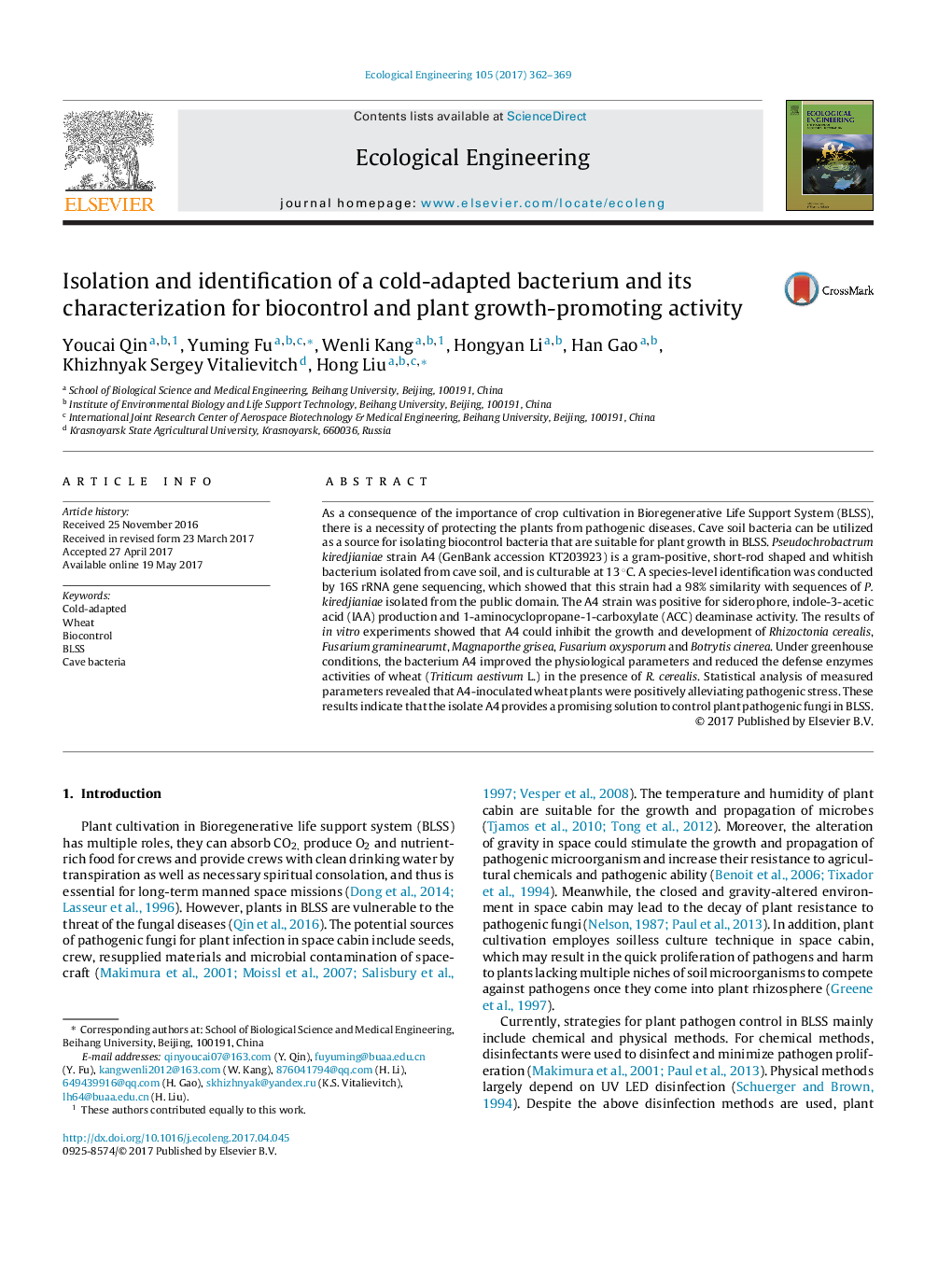| Article ID | Journal | Published Year | Pages | File Type |
|---|---|---|---|---|
| 5743630 | Ecological Engineering | 2017 | 8 Pages |
â¢Unique requirements of protecting the plants from pathogenic diseases in BLSS.â¢Cold-adapted baterium - Pseudochrobactrum has biocontrol ability.â¢The bacterium has broad inhibition against plant pathogens and potential can be used in BLSS.
As a consequence of the importance of crop cultivation in Bioregenerative Life Support System (BLSS), there is a necessity of protecting the plants from pathogenic diseases. Cave soil bacteria can be utilized as a source for isolating biocontrol bacteria that are suitable for plant growth in BLSS. Pseudochrobactrum kiredjianiae strain A4 (GenBank accession KT203923) is a gram-positive, short-rod shaped and whitish bacterium isolated from cave soil, and is culturable at 13 °C. A species-level identification was conducted by 16S rRNA gene sequencing, which showed that this strain had a 98% similarity with sequences of P. kiredjianiae isolated from the public domain. The A4 strain was positive for siderophore, indole-3-acetic acid (IAA) production and 1-aminocyclopropane-1-carboxylate (ACC) deaminase activity. The results of in vitro experiments showed that A4 could inhibit the growth and development of Rhizoctonia cerealis, Fusarium graminearumt, Magnaporthe grisea, Fusarium oxysporum and Botrytis cinerea. Under greenhouse conditions, the bacterium A4 improved the physiological parameters and reduced the defense enzymes activities of wheat (Triticum aestivum L.) in the presence of R. cerealis. Statistical analysis of measured parameters revealed that A4-inoculated wheat plants were positively alleviating pathogenic stress. These results indicate that the isolate A4 provides a promising solution to control plant pathogenic fungi in BLSS.
